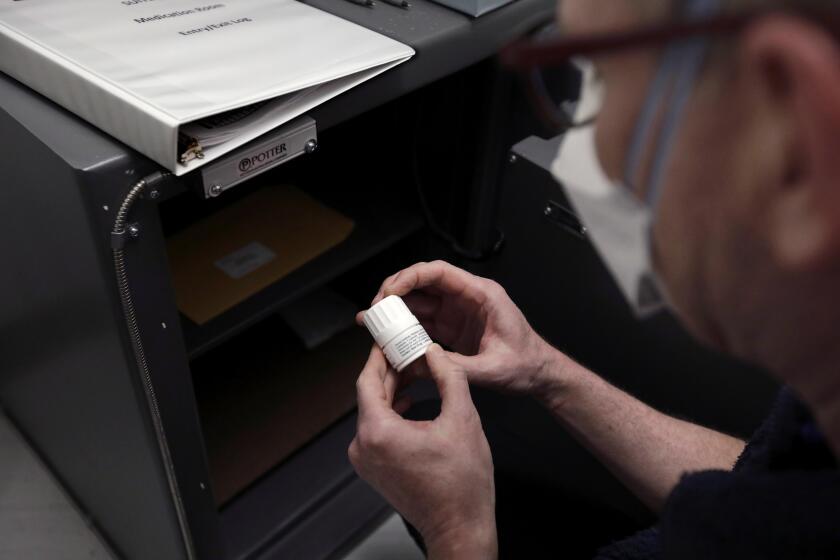Science / Medicine : Gene Replacement Tests
An inherited human disorder that causes retardation and skeletal abnormalities has been cured in mice by the injection of a human gene, a researcher said last week.
The technique cannot now be used in humans, but the experiment demonstrates that gene replacement is feasible for treating an important group of human disorders, said Edward Birkenmeier of the Jackson Laboratory in Bar Harbor, Me. “It works remarkably well,” Birkenmeier said. “You can completely cure the mice.”
The mice carried a genetic mutation like that seen in the human disorder called mucopolysaccharidosis type 7, or MPS-7, which occurs in about one in 25,000 births. The seven forms of MPS are characterized by genetic defects that leave the body without an enzyme needed to break down and dispose of waste products.
Birkenmeier has eliminated the symptoms of MPS-7 in afflicted mice in two ways. In the first, he injected the human gene into fertilized mouse eggs, which were then grown into healthy mice. In the second, he removed bone marrow cells from afflicted mice, inserted the gene into the cells, and put the cells back into bone marrow, where they replicated and produced the missing enzyme.



